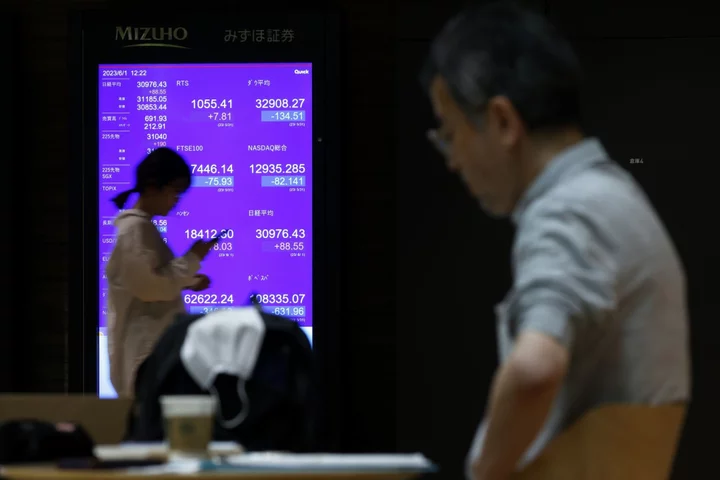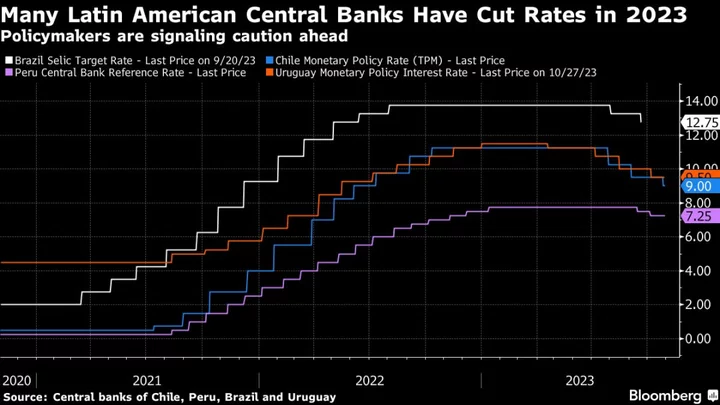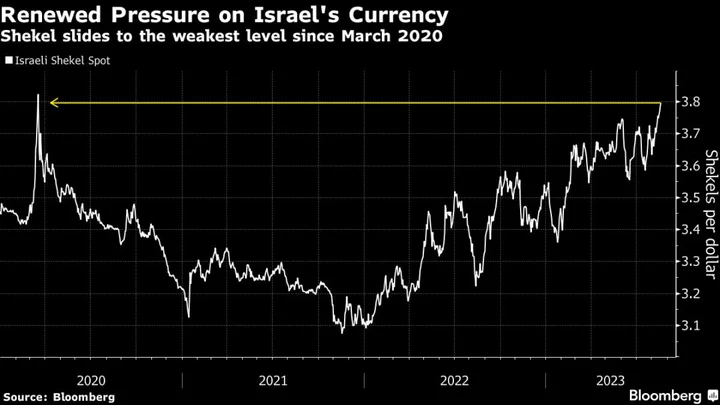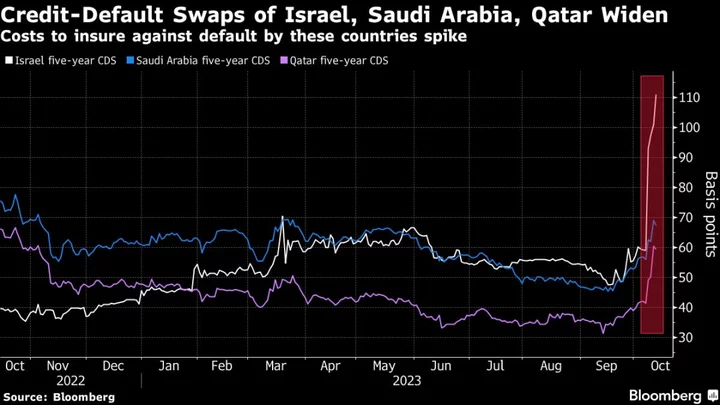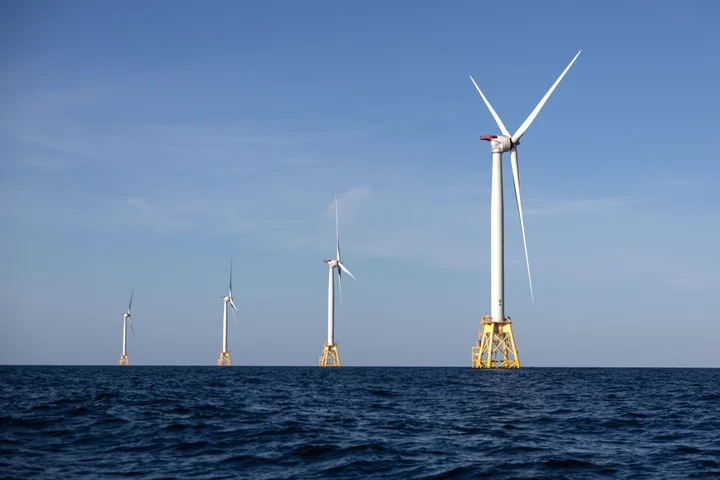Yields on government bonds opened higher in Australia and Japan while Treasuries held most of their sharp move from the previous session as investors reassessed the risks from inflation.
Benchmark 10-year yields rose around 12 basis points in Australia and New Zealand on Thursday while Japanese yields of the same maturity edged two basis points higher. The yield on Australia’s three-year note touched the highest level since 2012.
Treasury yields stabilized in Asian trading after a sharp increase across the curve Wednesday that added 14 basis points to the 10-year benchmark.
The unexpected decision of the Bank of Canada to restart its rate-hiking campaign — which followed a hike earlier in the week in Australia that wrong-footed traders — has sparked a reassessment on prices in bond markets.
The moves in Japan, meanwhile, were heavily influenced by GDP data that was much stronger than estimated, with the economy expanding 2.7% in the first quarter versus projections for 1.9% growth. The news also saw the yen strengthen.
The hike in Canada had immediate impact across global markets, spurring traders to boost wagers on Federal Reserve tightening, with swaps at one point fully pricing in a quarter-point hike for the July meeting. Bets for next week’s decision edged higher but still priced less than 40% odds of such an increase.
Australian shares were little changed while Japanese equities rose. Overnight in the US, tech shares bore the brunt of jitters over higher rates, sending the S&P 500 down for a second day this week and the Nasdaq 100 to its worst day since April. Contracts on the US benchmarks were largely flat in Asian trading.
“Given the rally that we’ve had, it would be normal to see a bit of a pause, particularly in the context that we see where rates might plateau quite soon, but stay higher for longer,” Virginie Maisonneuve, global chief investment officer, equity, for Allianz Global Investors, said in an interview with Bloomberg Television.
Bridgewater Associates’ billionaire founder Ray Dalio said while interest rates won’t go much higher, the economy will get worse.
“We are at the beginning of a late, big-cycle debt crisis when you are producing too much debt and have a shortage of buyers,” Dalio said from the Bloomberg Invest conference in New York.
The Reserve Bank of India will also take to the stage Thursday and is widely expected to keep rates on hold. BI economist Abhishek Gupta sees the central bank switching its policy stance to neutral, tempering its shift with hawkish rhetoric that reflects rising upside risks to inflation.
Key events this week:
- Eurozone GDP, Thursday
- Rate decisions in India, Peru, Thursday
- Japan GDP, Thursday
- US wholesale inventories, initial jobless claims, Thursday
- China PPI, CPI, Friday
Some of the main moves in markets as of 8:23 a.m. in Tokyo:
Stocks
- S&P 500 futures were little changed as of 9:35 a.m. Tokyo time. The S&P 500 fell 0.4%
- Nasdaq 100 futures were flat. The Nasdaq 100 fell 1.8%
- Hang Seng futures fell 0.3%
- Japan’s Topix rose 0.3%
- Australia’s S&P/ASX 200 was little changed
Currencies
- The Bloomberg Dollar Spot Index was little changed
- The euro was little changed at $1.0707
- The Japanese yen rose 0.1% to 139.95 per dollar
- The offshore yuan was little changed at 7.1459 per dollar
- The Australian dollar rose 0.2% to $0.6662
Cryptocurrencies
- Bitcoin rose 0.1% to $26,398.7
- Ether fell 0.3% to $1,835.94
Bonds
- The yield on 10-year Treasuries was little changed at 3.79%
- Japan’s 10-year yield advanced 1.5 basis points to 0.425%
- Australia’s 10-year yield advanced 13 basis points to 3.95%
Commodities
- West Texas Intermediate crude was little changed
- Spot gold rose 0.3% to $1,945.69 an ounce
This story was produced with the assistance of Bloomberg Automation.

